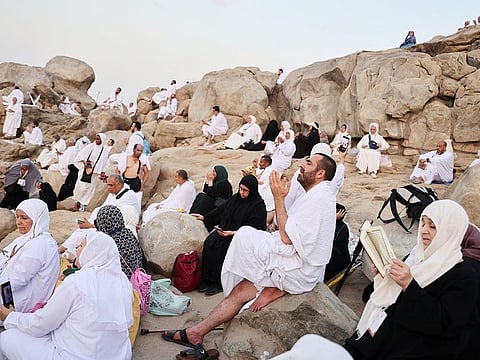Saudi Ministry of Hajj and Umrah sets strict new guidelines for international Hajj offices
Regulations to prevent misuse of pilgrimage for political or sectarian purposes

Dubai: The Saudi Ministry of Hajj and Umrah has announced strict new regulations to prevent the misuse of the annual Hajj pilgrimage for political or sectarian purposes.
The ministry emphasised that anyone intending to enter the Kingdom for activities that disrupt public security or order will be banned.
According to the newly released draft regulations, all foreign Hajj offices must comply with specific requirements and conditions to be approved. These offices are responsible for the pilgrims from their respective countries and must adhere to the regulations and instructions set by the ministry.
The regulations mandate that offices must enter pilgrims’ data into the electronic system before their arrival and ensure that pilgrims do not carry political materials or engage in disruptive activities.
Offices must also prevent unauthorised use of accommodations and transportation meant for pilgrims and refrain from commercial or brokerage activities related to Hajj services.
The ministry has stressed its commitment to preventing the exploitation of Hajj for political or sectarian agendas and will take decisive action against any violations. This includes the potential deportation of office heads or staff involved in breaches and the possibility of reducing the number of office members in future Hajj seasons if performance is deemed unsatisfactory.
Additionally, the draft regulations outline the procedures for accrediting foreign Hajj offices, including requirements for submitting an accreditation request, ensuring office staff are well-qualified, and linking to the ministry’s electronic system. The accreditation period extends until the end of Muharram the following year, with offices responsible for their pilgrims until their return home.
Sign up for the Daily Briefing
Get the latest news and updates straight to your inbox



